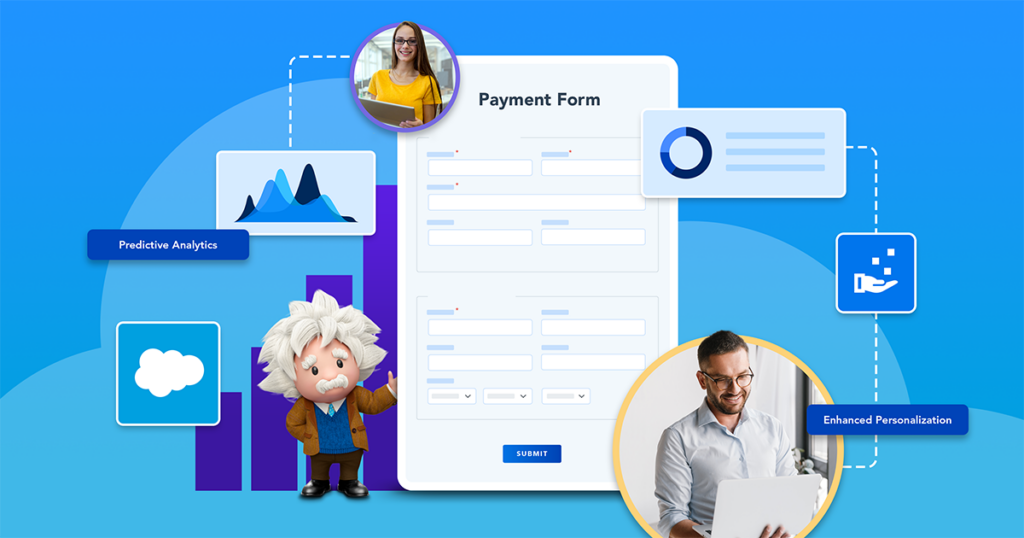After gaining experience in a given industry, it’s natural to want to rock the boat. Organizations should always push the edge and challenge their leaders with controversial, thought-provoking ideas. Regular questioning leads to more creativity, courage, and combined brainpower.
So, let’s cut to the chase with a new concept we’ve read recently. Are MQLs actually bullsh*t?
In this blog post, we’ll explore what this really means and question the status quo to help take sales and marketing results to the next level.
The measure of an MQL
A Marketing Qualified Lead (MQL) is any prospect who has actively engaged with your brand by expressing interest in marketing materials. Traditionally, MQLs are viewed favorably by sales and marketing teams because they represent the fish who have taken a bite at the line. They’re interested, hot, and ready to roll.
…but are they? Here are the kind of behaviors you would expect from a standard MQL:
- They submit a form for a free eBook or whitepaper
- They sign up for a product demo
- They join one of your mailing lists
- They repeatedly come back to your website or spend time on key pages
- They check in with you at a virtual booth or in-person event
Not bad, right? Of course, we can’t expect to do good business without these kinds of activities, but it’s important to ask yourself—why does it matter?
Why do we use MQL in the first place?
Have you ever stopped to answer the “why” that fuels routine activities? Whether it’s in business or in your personal life, you have to get introspective about the reasons why you do certain things. If you don’t know why your company is using MQLs (apart from the fact that XYZ Company has always used MQLs), then you’re forfeiting the true value.
We implement MQLs because they speak to the quality of different prospects. You’d probably prefer going out to dinner with someone who has talked to you, learned something about you, and expressed interest in your life, right? The same is true in a sales conversation. You’d rather open that door for someone who has raised their hand to show they have a need.
Additionally, using MQLs saves time. There’s no more going up to strange prospects who could care less about your offer or your angle. The use of MQLs signals readiness based on strict criteria. This brings us back to the question—are MQLs actually bullsh*t?
The real beneficiaries of an MQL model
When the system works, MQLs can be a serendipitous metric enjoyed by both marketing and sales teams. Marketers get immediate feedback on the type of content that buyers want, and sales members receive prospects who are clearly interested in starting a conversation.
But the truth is that MQLs can be inflated. They can be bought, swayed, and tricked. And if that’s the way your organization does business, let’s be clear—no one wins, least of all your future customer.
Is MQL already dead?
Some experts will tell you that the MQL is already dead. In fact, SaaS companies like Drift have released content with titles like “The MQL is Dead.” Subtle, right?
You see, it’s 2021, and the MQL is in deep trouble. It’s fighting and hollering and defending itself as relevant, while more beneficial metrics and ideas are rising up to change the conversation (especially as the conversation relates to revenue).
Fortunately, if you’re ready to forge a new path, you might be able to save yourself and your organization from the sinking ship that is the MQL.
The real deal: MQL to SQL
To shift the mindset, it’s helpful to care more about the conversion from MQL to SQL. MQL to SQL talks about two things: First, it talks about the qualification of a lead, and second, it talks about what needs to happen in order for SDRs and AEs to actually convert those leads to buyers.
The MQL to SQL process is not just about getting the fish to bite. Let’s be honest—you can entice people with a lot of shiny things that aren’t connected to your sales process in the slightest. Yes, a prospect might want a virtual gift card or an especially helpful freebie, but if they’re not the right person for your offer, then your SDRs and AEs are dead in the water.
The actual quality of an MQL is what fuels MQL to SQL conversion. If you have thousands of MQLs but low conversion rates and slow sales cycles, the problem isn’t in the number; it’s in the substance. Quality over quantity matters when you’re measuring MQL to SQL conversion.
Convert, convert, convert
Ultimately, teams can’t rely on this one metric by itself. To survive, you have to have a plan for conversion. MQL to SQL (Sales Qualified Lead) has to happen.
MQL without conversion is useless.
Sales and marketing teams must be aligned on that truth in order to see real results and drive sustainable, growing revenue. When each team is only focused on the metric to which they’re held accountable by executives and stakeholders, there’s a whole lot of dancing and shuffling without any forward progress. If you really want to scale your business, you have to kiss that kind of thinking goodbye.
Sales + marketing alignment = conversion
To put it simply, sales and marketing leads must be aligned. You cannot expect to generate substantial business if these two teams are operating in separate silos. It’s time to get on the same page, work for a common goal, and understand the real quality of prospects.
Additionally, while marketing leaders can be compensated on MQLs, earned revenue is a clearer measurement of impact. Thus, it’s important to shine your compensation spotlight as much on the big picture as it is on the granular KPIs.
Data integrity that doesn’t suck
The MQL to SQL process relies on solid data integrity, and data integrity includes many different aspects of customer and prospect data that your teams have access to. Strong data integrity implies several important truths about your business processes:
- Your company’s data is usable
- The available customer data is free from errors
- Your people can take specific actions from that data
- Your teams are unified as a result of the data
Within the context of MQLs, data integrity means that your sales and marketing teams can trust that the MQL data is actionable, relevant, and trustworthy.
If that’s not the case, then perhaps you need to take a closer look at your data integrity (just like we’ve done at FormAssembly). Here are a few tips straight from our experience.
Do more of this
Improving your data integrity is possible, and it can even be simple to accomplish with everyone in alignment. Here are several actions to incorporate into your strategy.
- Always score your leads. Prospects aren’t created equal, and that means you must understand which actions yield the highest results. Get granular with your behavioral data, and automate the lead scoring process to save time and effort.
- Use a conversational approach. Conversation-based marketing and instant response messaging services keep your MQLs engaged. If you don’t have a solution for closing the gap between the first point of interest and the first interaction, it’s time to make some changes.
- Say “no” to distorted KPIs. So you’ve generated a huge contact list of potential MQLs. So what? Ditch the bloated metrics and get hyper-focused on the people who are actually ready, eager, and willing to hear from you. You may need to shift resources in order to spend more energy and resources on the conversion process.
Do less of this
If you’re serious about making sure that MQL actually means something, then you’ve got to stop doing some of the things that create the most serious problems. Try to put an end to these habits:
- Throwing around terms with loose definitions. Anyone can toss around acronyms like MQL and SQL. Do your team members know what those phrases actually represent? Have you established clear and transparent benchmarks that everyone understands? If not, you’ve got a foundational problem that no amount of leads will solve.
- Evaluating progress whenever you feel like it. Are you asking your team members to meet KPIs without following up? If you want to redeem the MQL and data integrity, you’ve got to look at the data more often. No questions asked.
- Allowing process failures to impact your prospects. Does your team know how to use the tech stack you’ve provided? Do they know the process to follow to leverage it? If not, your breakdown in process management is creating a hassle. Your MQLs and SQLs will pick up on this failure, and they will move on.
Align your people, generate revenue
MQL is only bullsh*t if we make it that way. Yes, it’s a metric that’s been overused, abused, and inflated, but that doesn’t mean we can’t receive value from it. In fact, when our teams are aligned, it’s just one more tool we can use to create an organizational ripple effect.
When you steer your team members away from vanity metrics and get to the nitty gritty of customer connection, you’ll start to win. And when your team players are in alignment with the overarching goal, you’ll be able to define the customer journey clearly and start using your talent in the right places.
At the end of the day, when the members of your team are serving the mission instead of focusing on empty metrics, your revenue potential soars.
Closing thoughts
The fatal flaw in the MQL system is banking on them as a badge of honor. MQLs that you do nothing with really are worthless. On the flip side, using MQL as a launching point for conversation, conversion, and expansion is the only way to reach revenue targets.
Keep the conversation going
FormAssembly is a thought leader when it comes to data collection and stewardship, and our team is always excited to keep the conversation fresh. Connect with our team on LinkedIn for more content like you see here.



